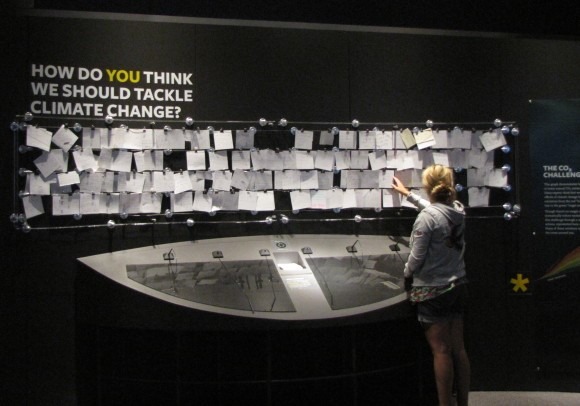Before I go any further, let me be clear: climate change is real. It is happening now. Humans drive the process by burning fossil fuels. And there is no dissent among scientists about these things.
In the world off campus, we academics often deploy these statements to shut down climate denialism, or the dismissal of the existence, threat, and consensus of climate change. Our words profess a faith in scientists, the scientific method, and the peer-review process to provide citizens with the most authoritative picture of the global environment.
On campus, I have a harder time bringing closure to such conversations. I experienced this in my classroom last spring, where I spent the majority of the semester convincing students to shift their views on science and nature. Week after week, I documented how science was socially constructed. I told them Science did not have direct access to Truth. I wanted them to understand that scientists do not stand apart from society; rather they, and the research questions they pursue, are influenced by that society. Even more, the project of knowledge production had for centuries been entangled with economic expansion, colonialism, environmental degradation, and environmental control. This was especially apparent in the corner of the planet where I do research, the North American Arctic, which formed the center of this course. That region is also warming faster than most places on Earth.
When, at the end of the term, we turned to modern-day climate change, my students scrunched their faces in skepticism. Wait a second, they said. How do we believe the knowledge claims of scientists if science is inherently political? Why should we expect climate science to avoid or prevent the social and ecological trauma of science’s past?
These are important questions for anyone teaching environmental studies. They strike at issues not resolved by our responses to denialists. I gave answers when they were first asked, but haven’t been satisfied with what I said. I’ve since given them more careful thought and I think all environmental scholars—and their students—should, too… Read More.
This post originally appeared April 16, 2015 on Edge Effects, read the full post here.
Andrew Stuhl is an Assistant Professor of Environmental Humanities at Bucknell University. When not teaching about history, climate science, and civic engagement, he spends time finishing a book project on the colonial history of environmental change in the North American Arctic. That project, Unfreezing the Arctic, will be published by The University of Chicago Press. Contact. Twitter. Website.
MAHB-UTS Blogs are a joint venture between the University of Technology Sydney and the Millennium Alliance for Humanity and the Biosphere. Questions should be directed to joan@mahbonline.org
MAHB Blog: https://mahb.stanford.edu/blog/students-debate-climate-change/
The views and opinions expressed through the MAHB Website are those of the contributing authors and do not necessarily reflect an official position of the MAHB. The MAHB aims to share a range of perspectives and welcomes the discussions that they prompt.

